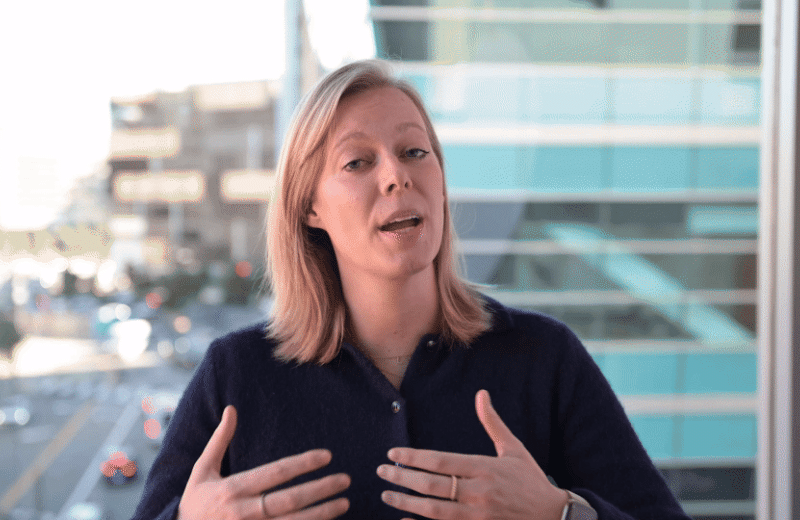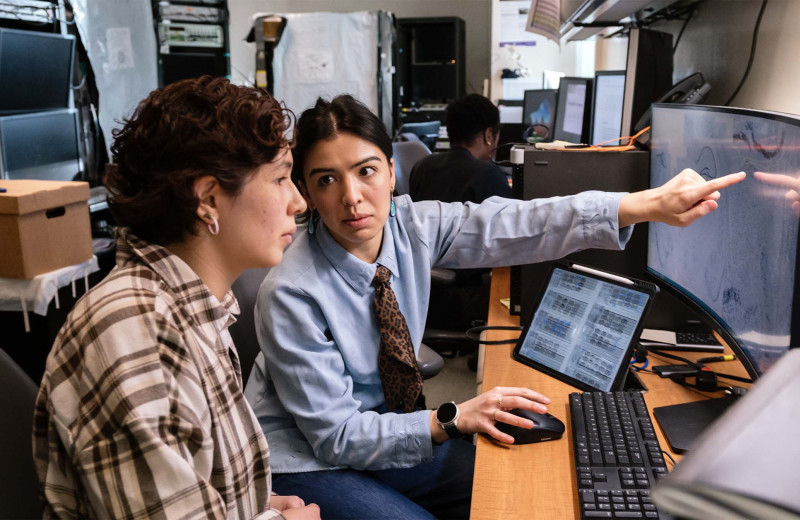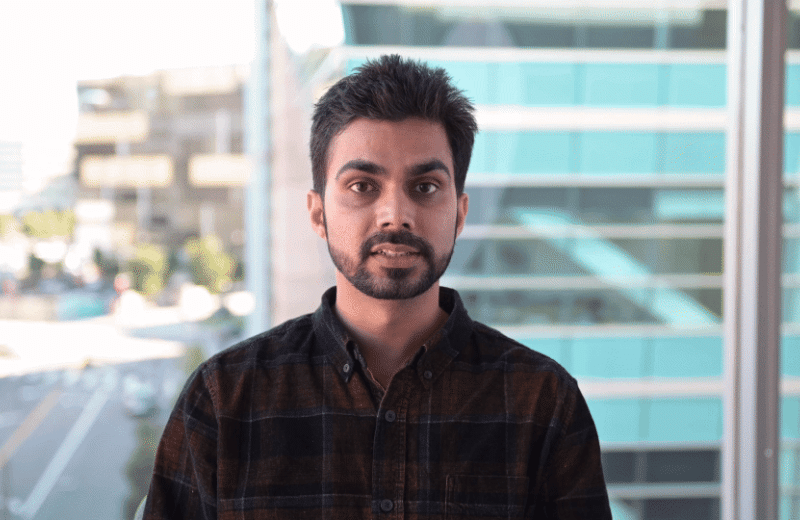Gladstone NOW: The Campaign Join Us on the Journey✕
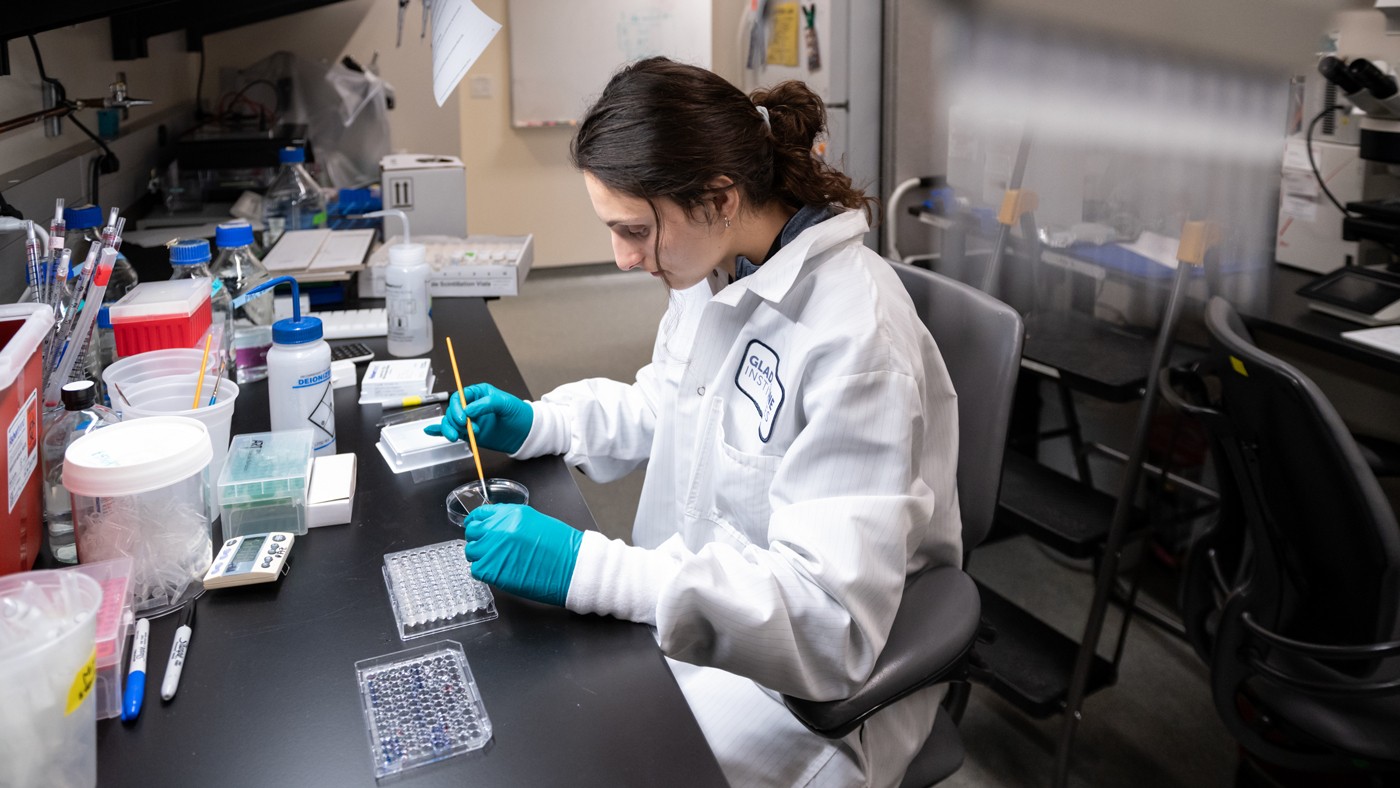
Graduate student Deanna Necula studies neuroimmunology in the context of traumatic brain injury in the lab of Associate Investigator Jeanne Paz.
Deep in the brain, a region known as the thalamus acts as a relay station for incoming movement and sensory information from the body. This highly complex brain region processes our hearing, taste, sight, and touch—and is responsible for a growing list of other functions with profound implications for health, as well as disorders such as stroke and epilepsy.
Which is why, this past February, graduate students and postdoctoral scholars from countries as far away as South Korea, Germany, Norway, and Switzerland convened in the coastal city of Ventura, California, to share their latest research on this fascinating brain region.
At the helm of the international Gordon Research Seminar was a scientist from Gladstone: Deanna Necula, a fifth-year graduate student in the lab of Gladstone Associate Investigator Jeanne Paz, PhD. She co-chaired the event, “Thalamocortical Interactions: Thalamic Networks in Physiological States and Disease,” along with Ellery Jones, a fifth-year graduate student in Massimo Scanziani’s lab in the UC San Francisco neuroscience program.
The students planned nearly every element of the seminar, from fundraising to program planning, the latter presenting a particular challenge. “We had trainees at vastly different stages in their training, working in different model organisms, interested in circuitry versus anatomy versus injury and disease,” says Necula. “Ellery and I did our best to structure the program in a way that was enriching and novel for a very broad audience and I think we met all of our goals.”
“Chairing a Gordon Research Seminar is extremely prestigious,” says Paz, a member of the Gladstone Institute of Neurological Disease and associate professor in the Department of Neurology and the Kavli Institute for Fundamental Neuroscience at UC San Francisco. “The leadership these two demonstrated is impressive. Our students rocked.”
In Paz’s lab, Necula studies the complement system, a key component of the body’s immune system, and how it relates to sleep distrubances and epilepsy observed after traumatic brain injury.
Paz, who mentored Necula and Jones in the organization of the seminar, chaired a related Gordon Research Conference the following week. That conference, which drew scientists at all career stages and from around the world, centered on interactions between the thalamus and the brain’s outermost layer, the cortex, and their roles in sensorimotor and cognitive functions.
At both events, Paz was able to catch up with an alumna from her lab, Frances Cho, PhD, now a postdoctoral scholar at Stanford University, who co-chaired a Gordon Research Seminar in Italy in 2022. This year, Cho delivered a presentation on her studies of nerve cells known as reticular thalamic neurons, and helped close out the second day of the seminar with a discussion on mentorship and career paths.
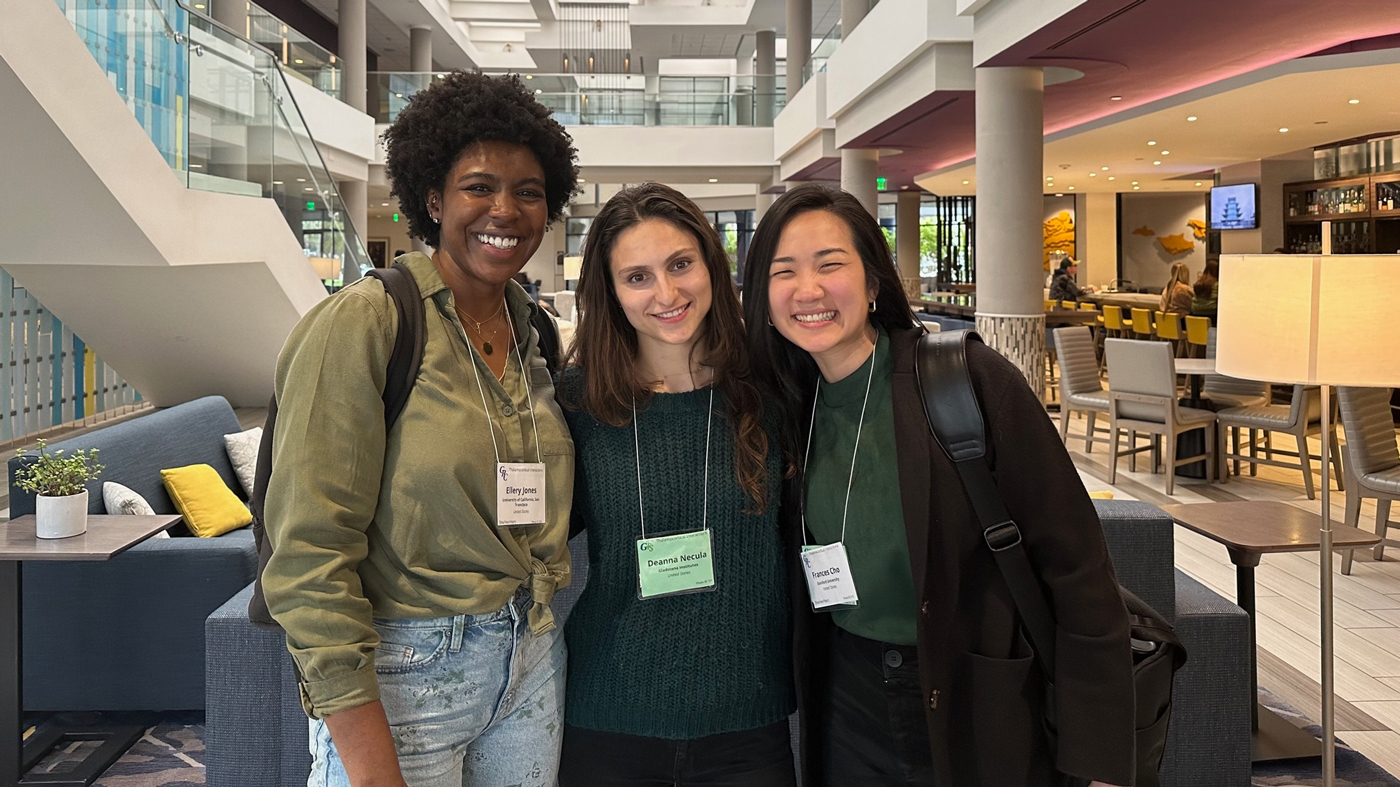
Left to right: Ellery Jones, Deanna Necula, and Frances Cho
“Ellery and I were particularly proud of the career mentorship panel that we arranged: ‘Thinking Outside the Box: Stories of Diverse Career Paths,’” says Necula. “We wanted trainees to be exposed to the growing diversity of career opportunities available beyond the traditional routes of academia and industry. Even these sectors are increasingly splintering into their own formal subdivisions.”
Founded in 1931, Gordon Research Conferences provide an international forum for the presentation and discussion of cutting-edge research. The accompanying seminars enable young doctoral and postdoctoral researchers to present and discuss their work, while building collaborative relationships with their peers.
Meet Gladstone: Alisa Dietl
Meet Gladstone: Alisa Dietl
Alisa Dietl brings her international training and clinical perspective to Gladstone, where she works to engineer more effective cancer immunotherapies for solid tumors.
Graduate Students and Postdocs Profile Cancer Pelka LabVoices of Outstanding Mentorship
Voices of Outstanding Mentorship
Three recipients of Gladstone’s Outstanding Mentoring Award share their personal approaches to mentorship and reflect how this passion has shaped their own growth as leaders.
Profile Roan Lab Graduate Students and PostdocsMeet Gladstone: Shyam Jinagal
Meet Gladstone: Shyam Jinagal
Shyam Jinagal explores how genetics, aging, and regeneration shape the heart—and how those insights could one day restore heart function after injury.
Graduate Students and Postdocs Profile Cardiovascular Disease Srivastava Lab

